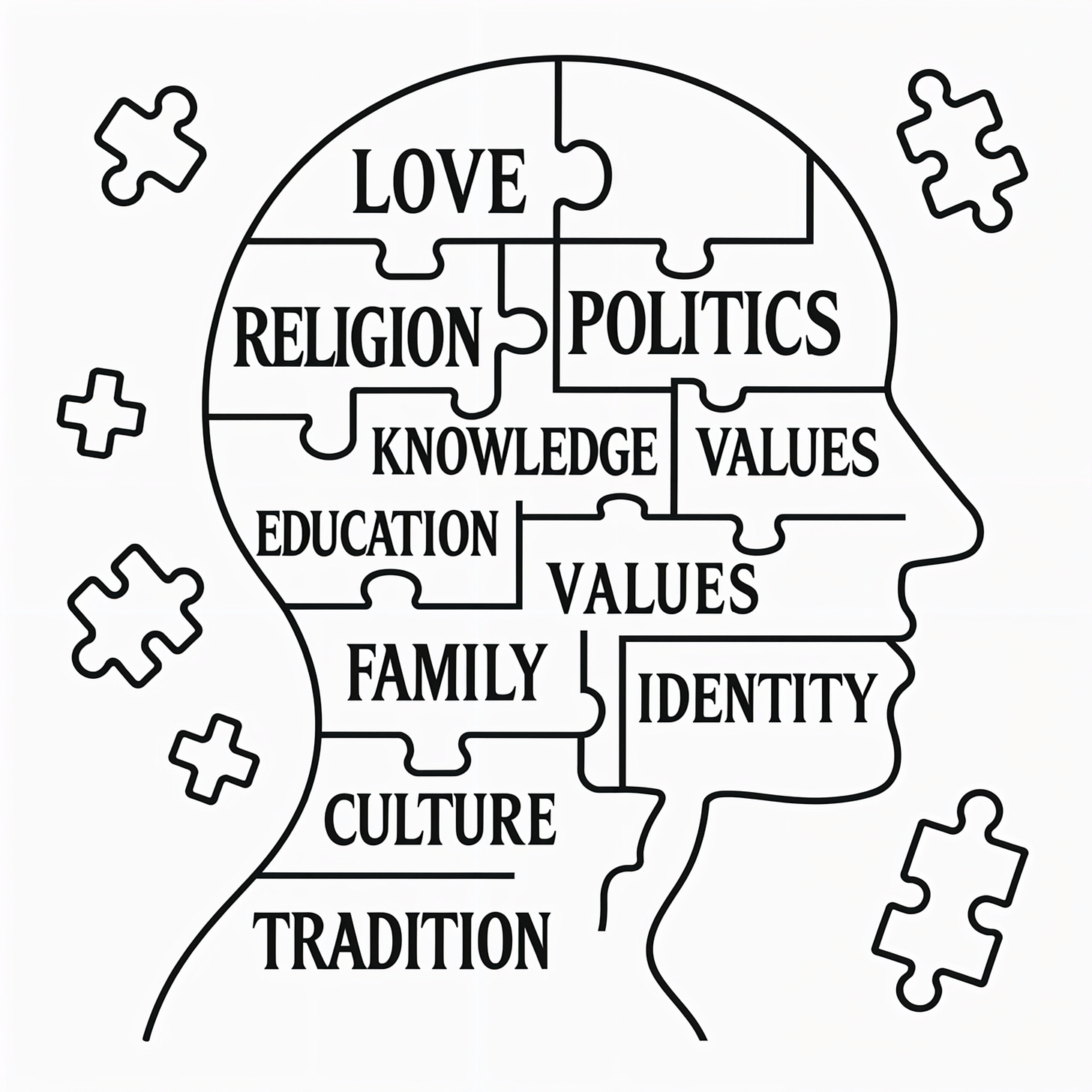1-48: Borrowed Beliefs
The Inheritance of Values
What is your religion? Why do you hold these beliefs? Chances are, your religious beliefs closely align with those of your parents or caregivers. Similarly, have you ever paused to consider your political views or your core values regarding family, education, or success? Much of what shapes our identities comes not only from genetics or personal experiences but also from the ideas, beliefs, and values inherited from those around us during our formative years.
This concept is somewhat parallel to the classic "nature versus nurture" discussion, but viewed through a psychological and cultural lens. While genetics undeniably influences aspects of our personality and intelligence, the environment and our upbringing play an immense role in crafting our opinions, morals, and identity. The beliefs instilled in us early on often subtly influence the decisions and behaviors we adopt throughout our lives.
I was born Catholic, baptized, and attended church every Sunday with my family. My mother was the more religious of my parents, but my dad consistently attended mass with us and always had a positive attitude toward our church community. Watching my dad write a check each week or offering cash from his wallet for donations showed me his generous nature, a trait I've adopted and cultivated throughout my own life.
My involvement with religion has ebbed and flowed as I've grown and matured, fading somewhat during my early working years but rekindling and growing more recently. While I've learned about various religions, none have resonated enough to make me consider converting, yet the idea of completely abandoning my religion has never crossed my mind either. Just like holding an investment requires daily evaluation including whether to hold, buy more, or sell, regularly assessing and reaffirming your beliefs ensures they remain meaningful and aligned with your evolving values.
Whether someone identifies as a Jewish Democrat, a Catholic Republican, an Atheist Liberal, or any combination of political or religious affiliations, it's highly likely that these perspectives were first introduced and nurtured by parents or influential mentors during childhood. As children, we naturally absorb the worldviews demonstrated and advocated by our primary caregivers, peers, and community leaders. These formative interactions serve as the initial foundation upon which we build our understanding of the world.
While these inherited values are useful in orienting us early on, adolescence and early adulthood expose us to countless belief and value systems. Learning about other religions, cultures, and politics broadens our worldview and deepens our understanding of why our parents hold the values they do and why they chose to pass on their beliefs. These early years of discovering the world serve as a pivotal period where we critically assess the beliefs we were born into and determine whether to embrace them or adopt new beliefs entirely.
The concept of inheriting values prompts considering the great responsibility that parents, mentors, and educators have in purposefully shaping young minds. With this in mind, we should strive to be intentional in how we communicate and exemplify our ideologies, ensuring that future generations inherit thoughtful, well-rounded, and open-minded perspectives.
Ultimately, recognizing the inheritance of ideas prompts us to reflect deeply on the origins of our beliefs, question assumptions we might have unconsciously accepted, and actively choose the values we wish to carry forward.
Spouses deciding what values they will instill into their children represents the merging of two unique life experiences and value systems. When spouses hold differing values, whether religious, political, or otherwise, the conversation becomes an opportunity to thoughtfully discuss, blend, and establish a shared set of principles to pass on. Beyond tangible assets, our legacy lies profoundly in the ideas and values we pass along to the generations that follow.


